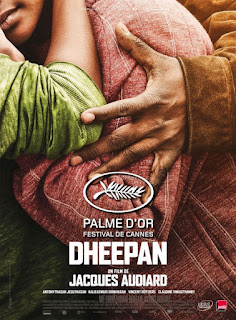Zoolander 2
Directed by: Ben Stiller.
Written by: Justin Theroux & Ben
Stiller and Nicholas Stoller and John Hamburg based on characters created by Drake
Sather & Ben Stiller.
Starring: Ben Stiller (Derek), Owen
Wilson (Hansel), Penélope Cruz (Valentina Valencia), Will Ferrell (Jacobim
Mugatu), Kristen Wiig (Alexanya Atoz), Kyle Mooney (Don Atari), Cyrus Arnold (Derek
Jr.), Christine Taylor (Matilda), Justin Theroux (Evil DJ), Milla Jovovich (Katinka),
Billy Zane (Billy Zane), Fred Armisen (VIP), Benedict Cumberbatch (All), Sting (Sting),
Nathan Lee Graham (Todd).
When I saw the original
Zoolander, in a nearly empty theater back in the fall of 2001, I didn’t laugh
very much – I thought it was, to put it mildly, dumb and unfunny. It was the
type of dumb comedy that I normally would have never given a second thought to
after watching it once and not enjoying it. But, a few years later, my wife
wanted to watch it for some reason – and so we did. And she laughed, and I
laughed, and by the end, I found I had quite liked it. It became a favorite of
my wife’s – and although it never went that far for me, I saw bits and pieces
of the film a number of times over the years (and probably the whole movie once
and twice more) – and I have to admit, my first impression of the film was
wrong. It really is quite funny. It’s dumb, of course, but that’s part of its
charm. I don’t know if it’s smart-dumb – like the best of the Will Ferrell/Adam
McKay movies – or dumb-dumb (like, uh, the worst of the Will Ferrell/Adam McKay
movies), but to this day, mention a freak gasoline fight accident to me, and
I’ll laugh.
I skipped Zoolander 2 in
theaters – not just because the reviews were bad, but also because with two
kids at home, the number of movies my wife and I get to see in theaters
together is limited – and I don’t think either one of us wanted to waste one on
it (strangely, we did go to the movies the weekend Zoolander 2 came out – but
like everyone else in the world we saw Deadpool instead – good call on our
part) – and I figured if I had any chance of enjoying Zoolander 2, it would be
with my wife, on the same couch where we have enjoyed the original Zoolander on
any number of occasions. Dear reader, it didn’t help. Zoolander 2 is awful.
I’m not going to say I didn’t
laugh at all during Zoolander 2 – that wouldn’t be accurate. Every time Kyle
Mooney’s Don Atari opened his mouth, I laughed. Mooney is playing a young
fashion designer who cheerfully announces that “That’s terrible. I love it”, or
some variation on it, every time he opens his mouth, and it’s funny the first
time you hear it – and somehow even funnier each successive time. I’d watch a
whole movie about him.
But not much else had me as
much as smiling throughout the film. The film is ridiculously over plotted –
with a vast conspiracy led by Mugatu (Will Ferrell), who has been in fashion
jail since the first movie, and centered on Zoolander’s son, Derek Jr. (Cyrus
Arnold), who was taken away from him nearly a decade ago after the death of
Zoolander’s wife (Christine Taylor – here in ghost form), when it became clear
that Zoolander didn’t even know how to make pasta soft. He’s been in hiding
ever since – as has Hansel (Owen Wilson) – who is having some problems with his
orgy. They are drawn out of hiding, and eventually either enlist the help of,
or become enlisted by, Valentina Valencia (Penelope Cruz), of the Fashion Division
of Interpol, who is trying to stop whatever the hell is going on.
Aside from being ridiculously over
plotted – the film is also basically a string of celebrity cameos from the
Justin Bieber opening on down. Sometimes celebrities are basically doing nothing
except standing in the background, and sometimes they have actual roles as
themselves, and are admittedly good sports about mocking themselves – including
a number of high profile fashion designers at the end, who portray themselves
as members of a murderous cult.
To me, the film seemed rather
toothless in its view of the fashion industry – an industry I know little about
to be honest (whenever I find myself scrolling through those slideshows of the
Best/Worst Dressed Celebrities, I end up being stunned about what is seen as
good and bad fashion). Zoolander and Hansel are portrayed as empty headed
idiots to be sure – but the rest of the industry isn’t. The shots they do take
– like those fashion designers as murderous cultists – are so outlandish that
they cannot be taken as a serious critique. The parade of celebrity cameos
distracts from the film, as it desperately tries to shoehorn everyone in.











